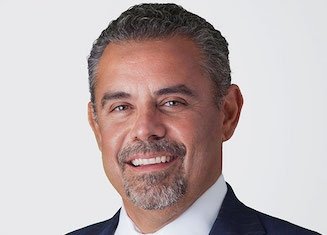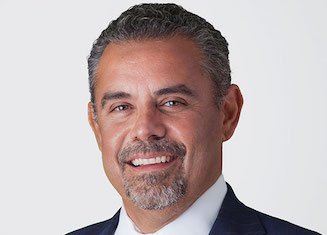Latin-oriented

US law firm Polsinelli launched a Latin America practice in March, and its chair, Emil R. Infante spoke to us about the opportunities south of the border, as well as the landscape post-COVID-19.
 Formerly of DLA Piper and Holland & Knight, Emil R. Infante is of Cuban-American origin, and grew up in Puerto Rico and the US, and his bilingual roots give him a competitive edge when working with Latin American clients.
Formerly of DLA Piper and Holland & Knight, Emil R. Infante is of Cuban-American origin, and grew up in Puerto Rico and the US, and his bilingual roots give him a competitive edge when working with Latin American clients.
“I always wanted to be the trusted adviser,” he says. “I learned from my mentors and my contemporaries how to perfect that role, of being the outside adviser. People pay me happily because they know I’ll provide a solution. I have a sign in my office that says ‘facilitate, don’t complicate’.
Infante recounts that he was at Holland & Knight and he got talking to Polsinelli about Latin America and the possibility of sharing a Latin America practice.
“I said, you know what? This is an absolute challenge, and it’s an opportunity for me to share a practice, and to do things the way I know how to do them.”
Infante is based out of Polsinelli’s Miami office.
“Infrastructure, energy, mining and financial services and governmental and immigration work are big for us,” he explains.
“We have a solid immigration practice. I have been able to resolve significant issues with people who have had their visa taken away simply because they have the same surname as some criminal or narco.”
“Polsinelli has done a lot of international work traditionally, but has not been pursuing a lot of publicity, it was grounded in the Mid-West with a very strong Mid-West client base; agricultural and industrial clients, and it has also been doing business in Europe and Asia, and the approach of the firm has been very US-centric, very strong on the balance sheet, old-money Mid-Western clients,” he explains.
“People don’t think about the Mid-West, one traditionally thinks of New York and other cities, but the business has always been there, the automotive industry, for example. We’ve dealt with big European companies that had business in Latin America, but Polsinelli didn’t focus on that, and companies would say ‘okay, let’s call a lawyer in Mexico to do it’, but it got to a point here the quality of the clientele and the volume of work began to grow, and so the firm was looking for someone to go ahead and lead that effort.”
Infante is also involved in anti-money laundering and corruption cases, and at Polsinelli he is able to draw on 40 attorneys with Latin America experience and language skills.
“We’re very Latin-oriented,” he says. “We have a good team and I’m bringing more people on board. In Miami I am focusing on bringing in more people focused on bankruptcy, for obvious reasons.”
COLLABORATION, NOT COMPETITION
“I have never wanted to open a practice in Latin America,” he says. “I focus on my practice, I have relationships with local firms, that’s what I do. I’m their guy. I get a call from a family office and they tell me I need to talk to their law firm in Mexico. My job here is not to come and be your competitor, I want to come here and work with you, as the local counsel, and divest myself of the image of being a competitor. if I’m walking into those law firms as a competitor I’m shooting myself in the foot and making my clients’ lives more difficult. People trust their lawyers. Those relationships go down through generations. They don’t just pop up.”
“Polsinelli gave me the opportunity. I asked them, ‘are you planning on planting flags in Latin America?’ And they said ‘absolutely not’. And I said ‘okay, then we can have a conversation’. Because if I’m going to share a practice, my strategy is to strengthen and expand relationships with local firms. We have no intention of competing with local law firms, we want to be their partners and collaborate with them, be their go-to people and have them as my go-to people there, and I give them business too, because I have relationships with companies in Latin America who need local counsel, and so I can put them in touch with lawyers that I’ve been working with for years. How cool is it that a lawyer in the US gives you his contact in Latin America to do business with?”
“I’ve been doing this for 20 years and I have relationships all the way down to Tierra del Fuego, and I usually have two law firms per country, for questions of conflict, and that way I can cover all of my clients’ needs, and put my clients in their hands, and the law firms respect that and there is a reciprocity of that philosophy.” “That’s why I decided to take this jump. And you know that they say, ‘it’s better to be lucky than good’. Those firms down there, the competitors I have, are going through a hard time right now, they’re not producing anything, and they can’t fire people because of the labour laws, you can’t just declare bankruptcy because there are no bankruptcy laws, and they are having serious issues maintaining their business. But Polsinelli’s overheads in Latin America are just two words: Emil Infante.”
“For the last 10 years we’ve been in an economic boom, but we’ve seen 9/11 and then 2008, we’ve seen ups and downs, but with this crisis globalisation will continue, but it definitely centralises professional services at a local level much more than before, and the reliance on local-level service providers will be significant,” Infante says.
“I think my timing was impeccable. This philosophy, and with Polsinelli backing me, is exactly the right philosophy going forward.” “I’m not an isolationist, I believe in globalisation, but globalisation has to have its limits and you have to take care of your own people, economically and socially, and my model follows that, and it feels good, to wake up in the morning and know that what you are doing is benefiting not only you but those that you care about. Karma, baby. Sí señor.”
OPPORTUNITIES POST-COVID-19
Latin America is bracing for a serious recession as it emerges from the lockdown imposed during the COVID-19 pandemic, and Infante is realistic and philosophical when it comes to predicting how companies in the region will be forced to restructure to recover.
“I think there will be a lot of activity, a lot of renegotiation of terms. Companies are saying, ‘wait a second, this is like nothing we’ve ever seen’. Companies will be looking to make deals survive, and that will turn into an adverse situation, I think we’ll see a negotiation process and there will be bankruptcies and a lot of litigation and arbitration between sovereigns and private parties.”
However, he is pessimistic about the actions being taken, or lack of, by the region’s governments to assist the private sector in overcoming the economic crisis that will ensue as a result of the pandemic.
“Chile has taken some significant steps, as it always does, as has Panama, although in Central America in general they have been extremely slow. But what scares me is that countries like Mexico are doing absolutely nothing, and it’s very sad to see governments taking advantage of a crisis to advance a political agenda, both on the right and on the left. It’s the private sector that drives an economy, and without taxes the government has nothing to fund its activities.”
“But I know a lot of people who are looking for money, and they will be willing to lend, so there will be big opportunities, even though the risks will be higher, and the returns will be good, although maybe not as high as before. Venture capital funds here in the US are licking their chops. The money’s there,” he says.
“I think Colombia is doing a good job. They have brought together the business and social and health sides of things but without forgetting the private sector.”
“Mexico is also going to have problems because of the price of oil, and because the government will not help [national oil company] Pemex, and its bonds are just one stop off being junk. Maybe the president [Andrés Manuel López Obrador] wants Pemex to fail” he says.
“And I think Brazil is going to be a late bloomer in terms of the virus, in a bad way, they did not take any stringent measures against the virus, the president has done absolutely nothing to prevent it, and there will be some serious issues in Brazil that will restrict business for at least a year. Brazil is boom or bust, there’s no happy medium”.















